Man Accuses His Brother Of Buying His Parrot's Affection With Toys, Redditors React
Beautiful and smart are the right words to describe African Grey parrots. They are wonderful pets in the proper home, but they need a lot of love, care, and exercise.
African Grey parrots are among the world's smartest birds and are said to be able to learn more than a thousand words and articulate sentences when appropriate. These stunning and perceptive birds frequently develop a close relationship with a single person and have a remarkable ability to read their handler's emotions.
Although these characteristics can seem desirable, new pet owners are not advised to buy African Grey parrots. These birds need lots of time spent with their owners, many puzzles and activities to keep their minds active, space to fly, and a consistent daily routine.
These extremely intelligent parrots require more than five hours of stimulation each day to prevent boredom and sadness. Once positive reinforcement and operant conditioning are mastered, they are relatively simple to train.
However, novice bird owners will need to familiarize themselves with training methods to ensure a successful outcome. OP's brother seems to be a novice, and he soon realizes his mistakes.
He didn't buy toys for his parrot, but his brother did, and they became close. He saw how cuddly the parrot got with the OP and accused him of bribing the parrot with toys.
Read the OP's full story below to find out how everything happened.
The OP kicks off his story
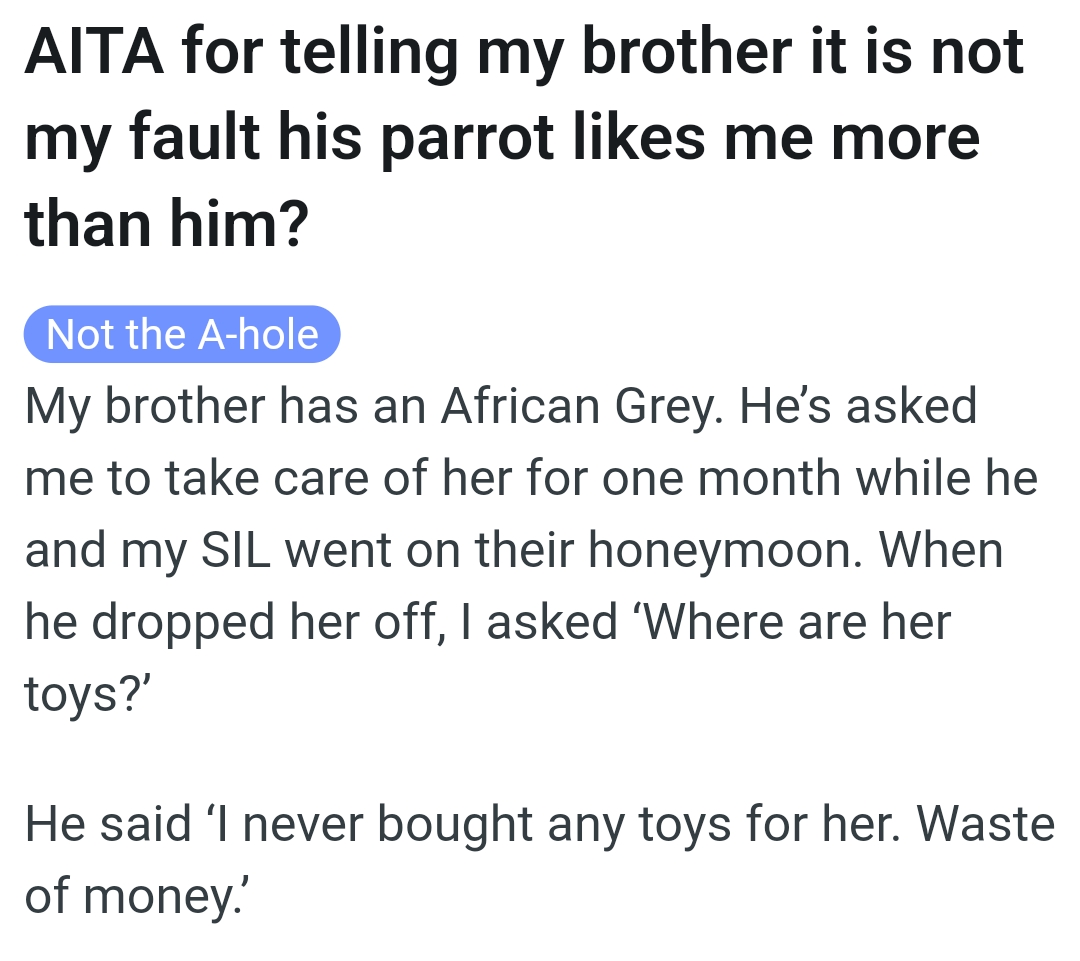
If it’s the toys, then it’s not the OP's fault the brother didn’t get his pet any toys

OP has offered the following explanation for why they think they might be the AH:
I was kind of mean to him when he was already upset, which might make me an AH.
The Reddit post got hundreds of comments, and we've gathered some of the most upvoted ones for you to read through below
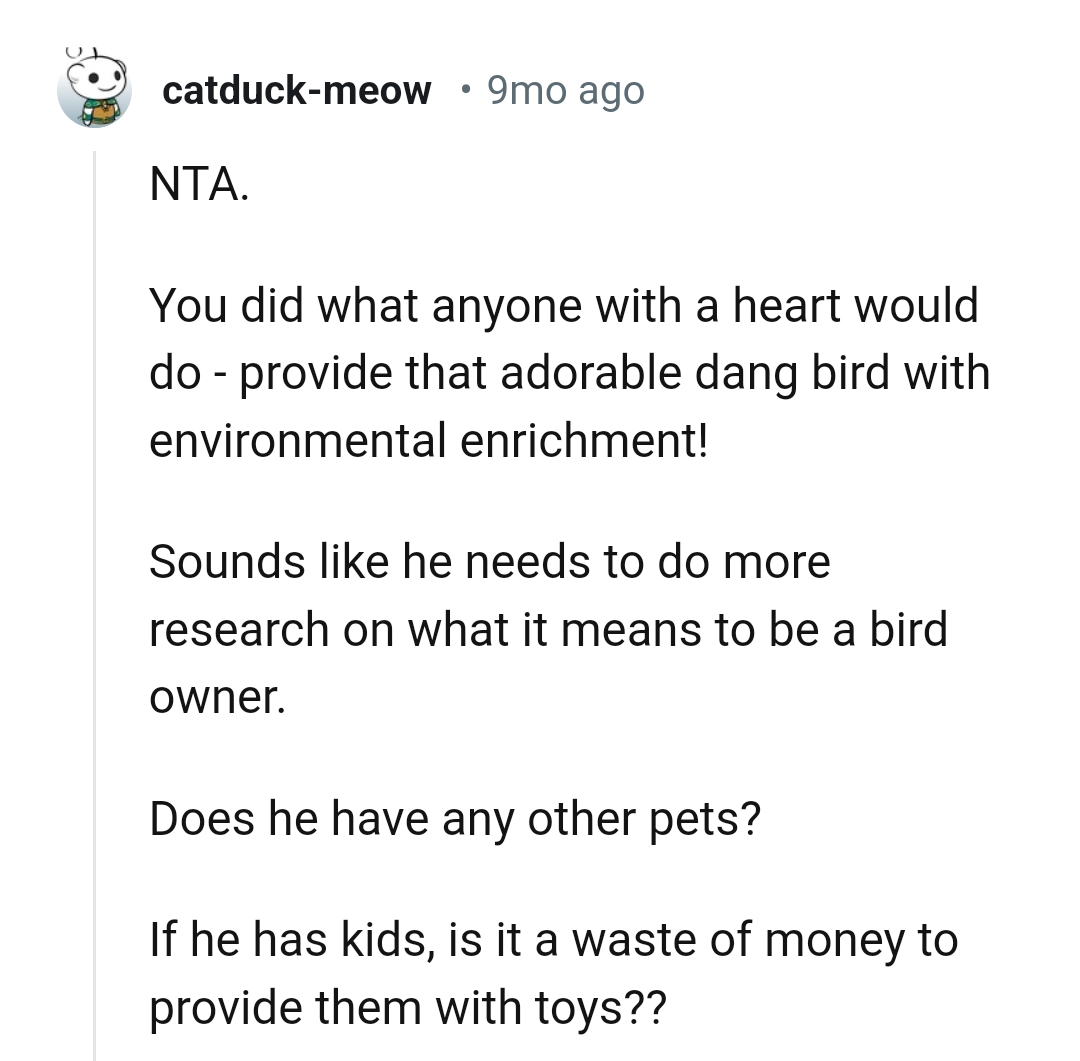
What's he doing with a pet if he can't handle it well?
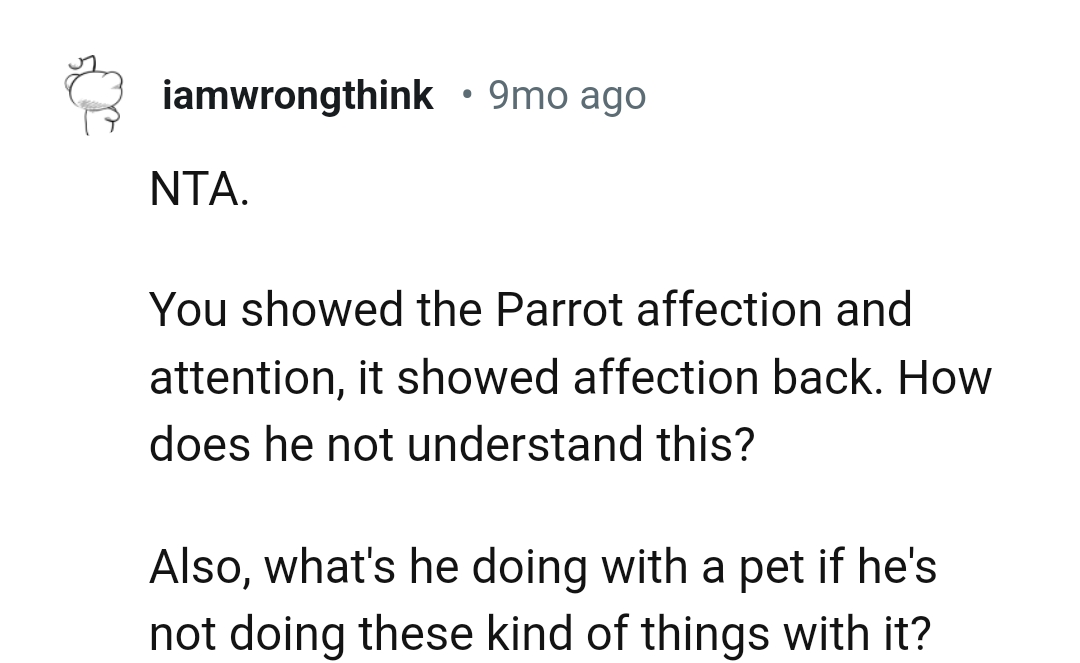
The Psychology of Attachment in Pets
Research in animal behavior shows that attachment styles can extend beyond human relationships. Dr. John Archer, a psychologist at the University of Liverpool, has explored how pets develop attachment behaviors similar to those of human children.
When a pet's affection seems to be 'bribed' with toys, it's essential to recognize that this behavior may stem from a deep-seated need for security and reassurance.
Understanding this attachment can help owners foster healthier relationships with their pets.
It's indeed not the OP's fault that the brother failed in his duties
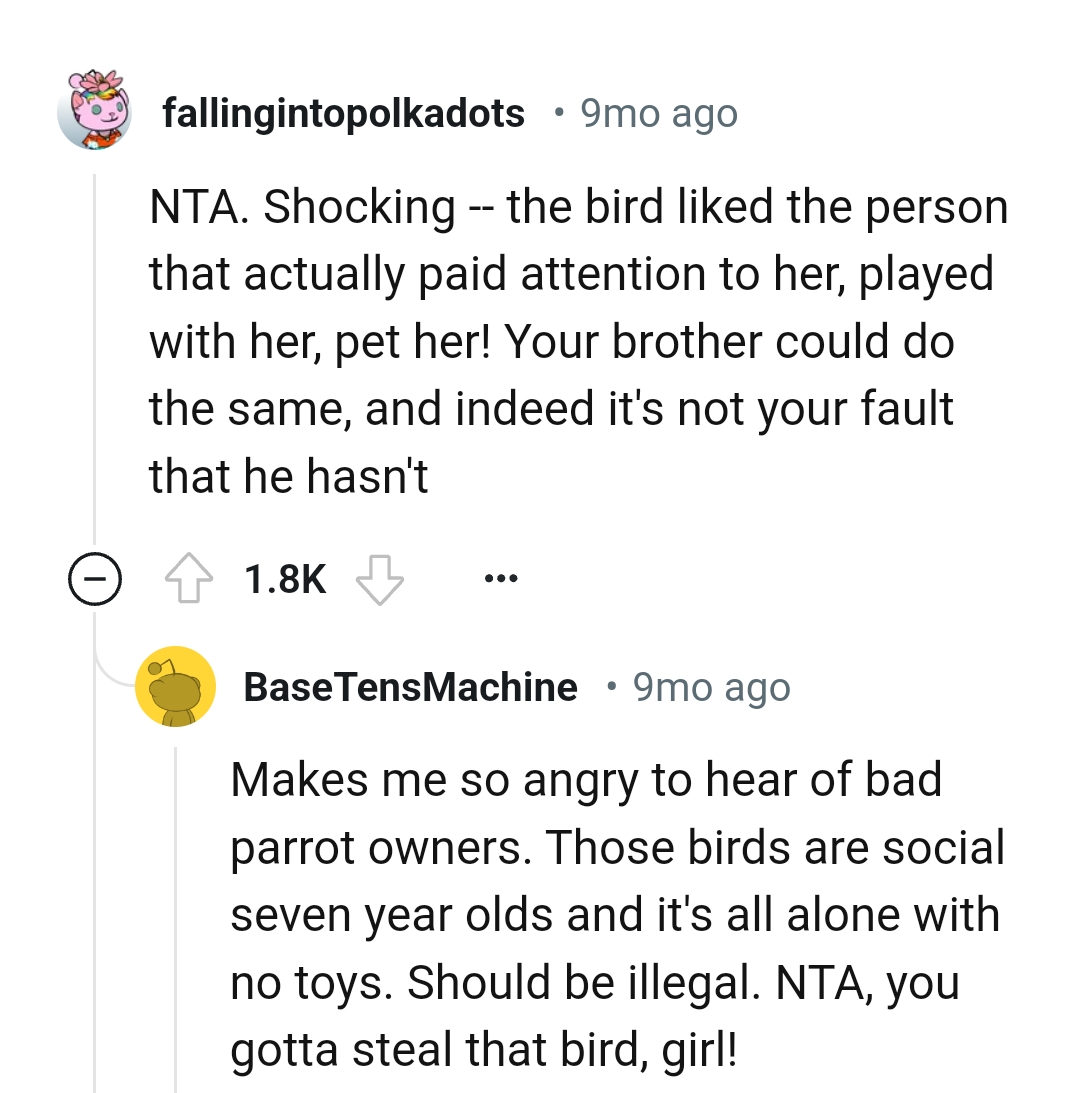
It will go to the one that treats it nicely
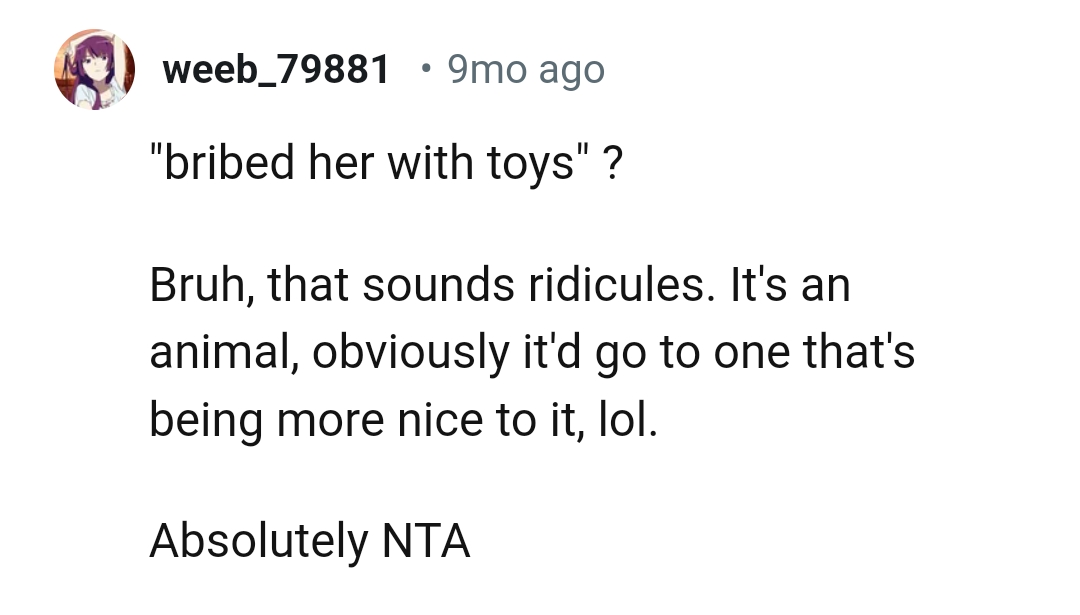
Behavioral studies indicate that animals, like humans, thrive on consistent reinforcement. As Dr. Helen Fisher, a biological anthropologist, states, "The emotional bonds we form with our pets are deeply influenced by the quality of our interactions and the rewards we provide." Animals that receive positive reinforcement develop stronger bonds with their caregivers. Therefore, while toys can enhance a pet's affection, it's the quality of interaction that truly matters. Establishing a secure attachment through consistent love, training, and interaction is vital for a pet's emotional well-being, as emphasized by Dr. Michele Gelfand, a cultural psychologist who notes, "The connections we nurture with our pets reflect our own emotional health and stability."
He should be enriching the environment of such an intelligent bird

Sounds like the OP would be a better pet owner
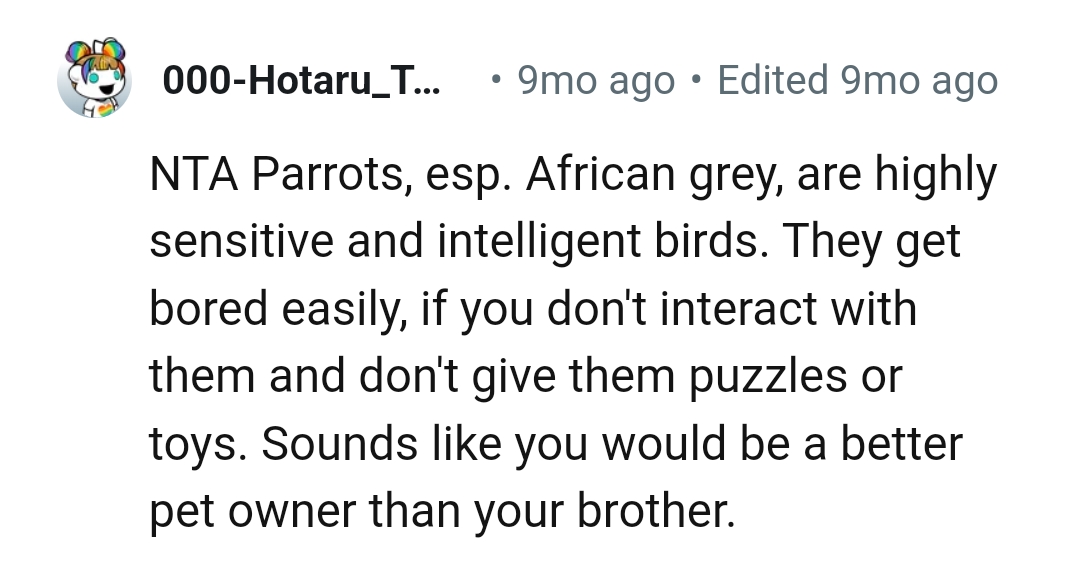
Navigating Competition in Relationships
This scenario highlights the competitive nature of human relationships, which can manifest even in the dynamics between pets. Social psychologists explain that competition for affection or attention can trigger insecurities in individuals.
Research shows that perceived competition can lead to jealousy and conflict, not just among humans but in pet relationships as well.
Understanding these dynamics can help pet owners manage their animals' interactions more effectively.
They are incredibly intelligent birds and will destroy everything...
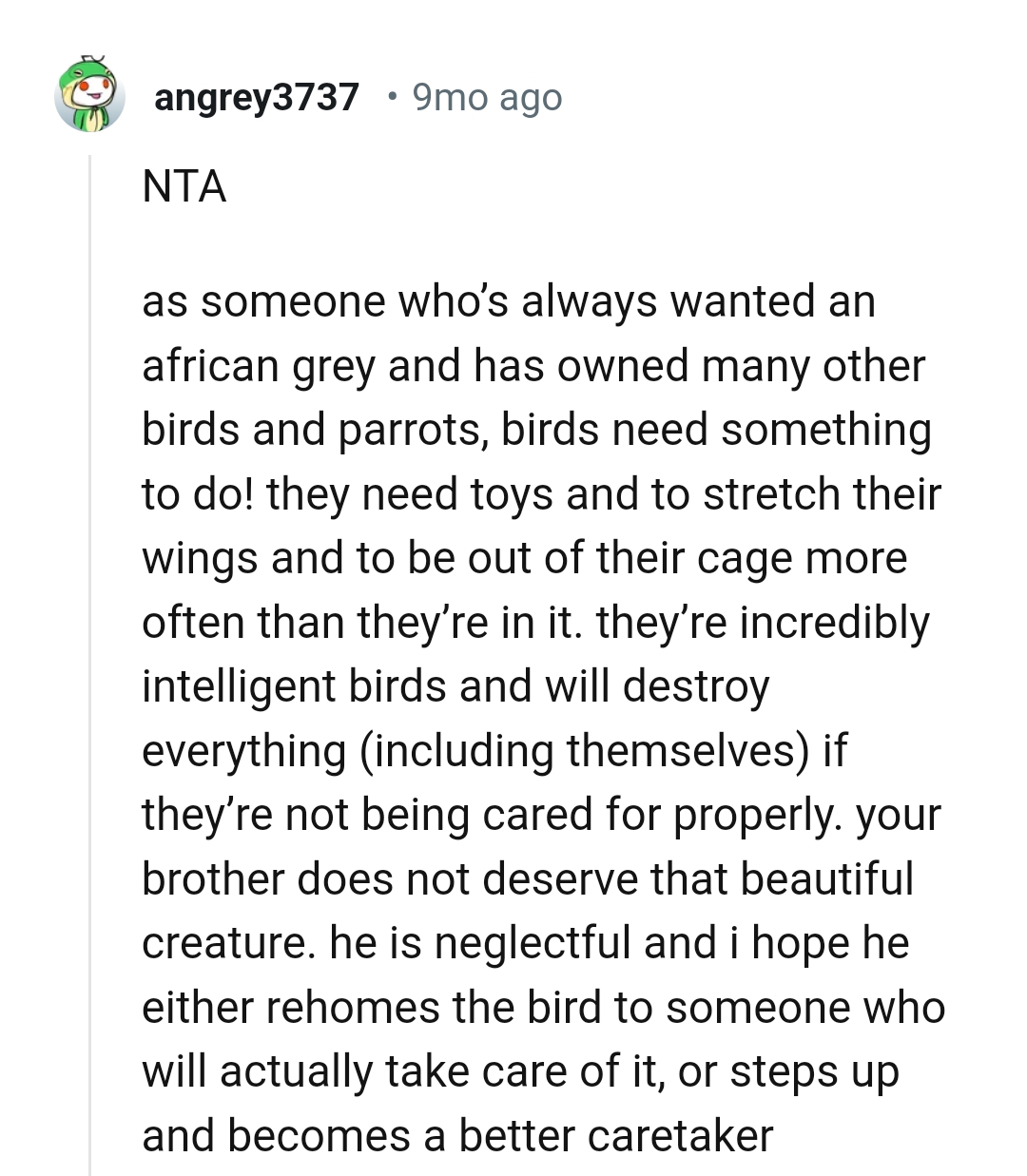
He isn't up to the task if he refers to toys as waste

To foster a harmonious environment, pet owners should strive to ensure all pets feel equally loved and valued. Incorporating shared activities, like group playtime, can help mitigate feelings of competition.
Additionally, providing each pet with individual attention can reinforce their unique bond with their owner.
This approach can promote mutual affection and reduce territorial behaviors that can arise from perceived favoritism.
Parrots are a long-term pet, not a novelty
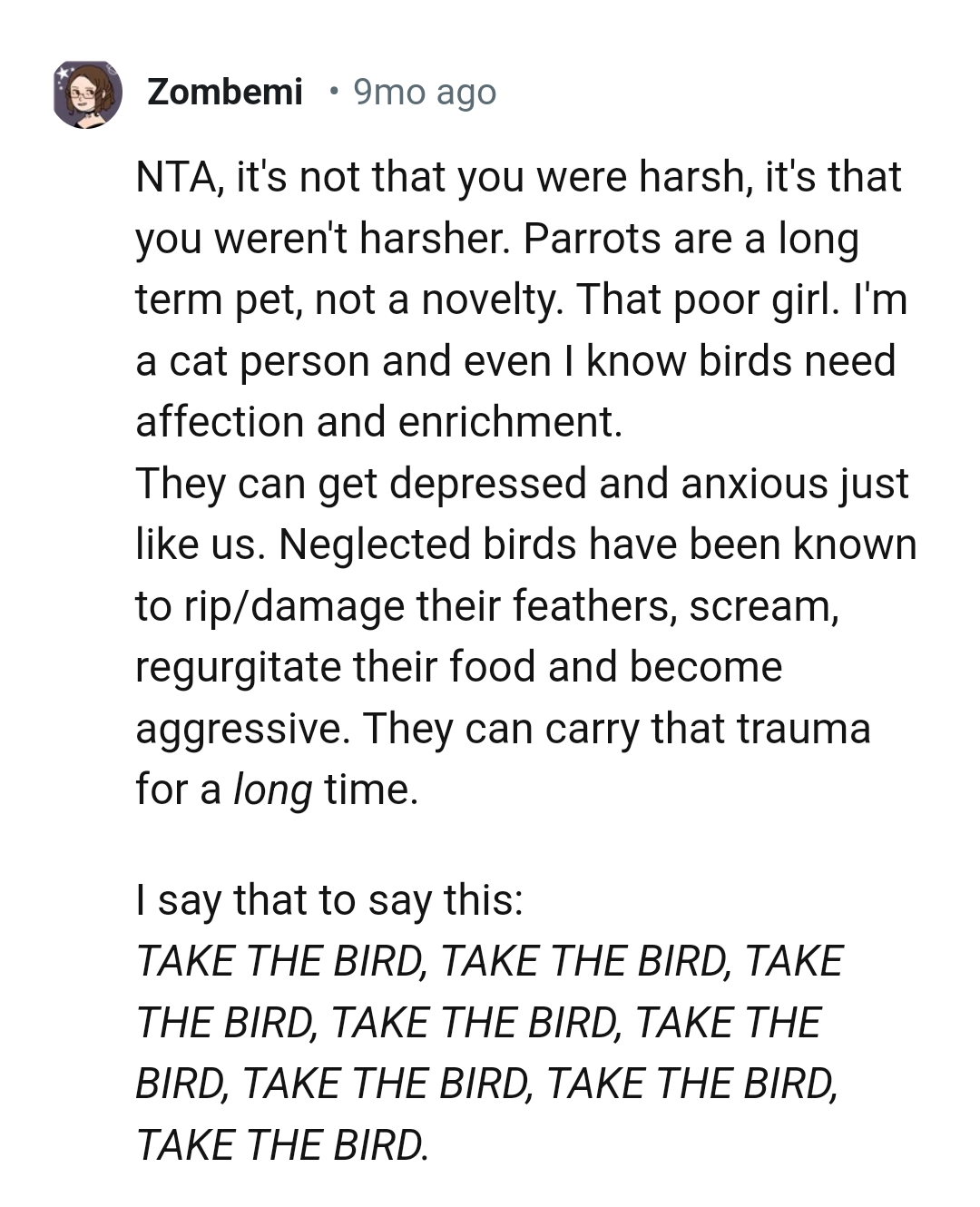
Greys are as smart as a four-year-old

African Grey parrots, in particular, are very smart and bright birds that require a lot of mental and environmental stimulation to keep them from becoming quite bored. Given that they can live for 40–60 years, some Redditors couldn't help but ask if OP's brother had any plans to buy her toys during this entire time.
It seems that OP's brother hasn't given the parrot much attention, and she is just reacting well to the one giving it to her. The OP was declared not the AH, and that's a wrap.
Psychological Analysis
This situation illustrates the complexities of affection dynamics, not only in human relationships but also in our connections with pets. It’s crucial for pet owners to understand how competition for attention can affect both their pets and their interactions.
By fostering a nurturing environment and ensuring that all pets feel equally valued, owners can promote healthier and more harmonious relationships.
Analysis generated by AI
Analysis & Alternative Approaches
In conclusion, understanding the emotional dynamics between pets and their owners is essential for creating healthy relationships. Research indicates that secure attachments can significantly enhance a pet's emotional health.
By focusing on positive reinforcement and equitable treatment, pet owners can foster fulfilling and loving bonds with their animals.
The Role of Positive Reinforcement
Positive reinforcement plays a crucial role in shaping behavior in both pets and humans. According to behavioral psychology, rewarding desired behaviors strengthens the likelihood of those behaviors being repeated.
This principle can be applied to pet training, where establishing routines that encourage good behavior can lead to a more affectionate and well-adjusted pet.
By investing time in training and bonding, owners can foster a deeper emotional connection with their pets.



